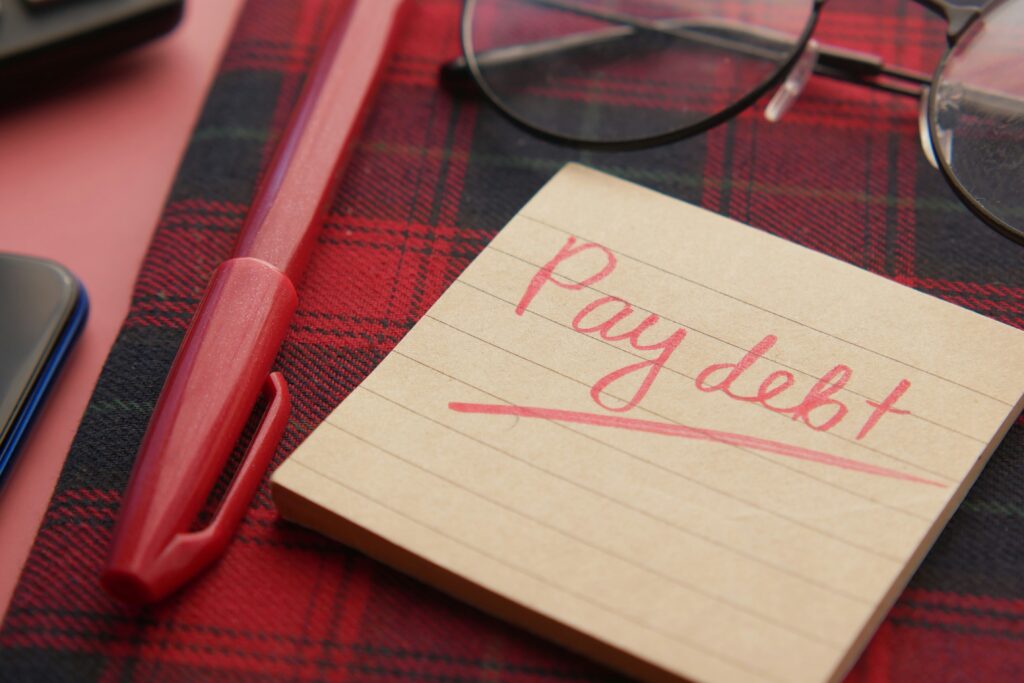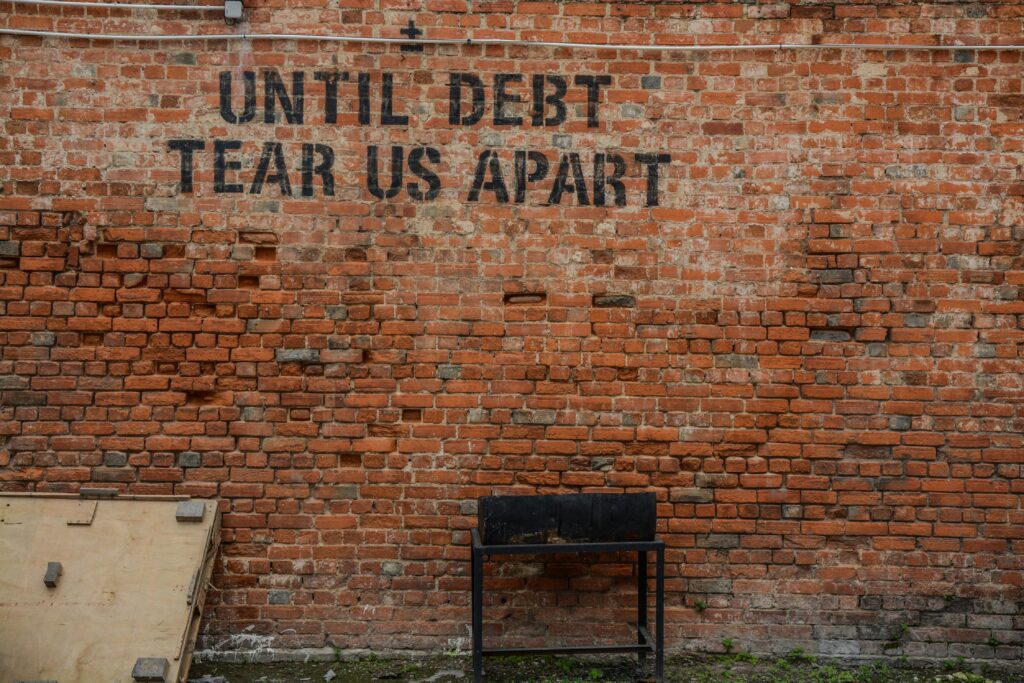Debt Reduction Techniques: A Faith-Based Path to Financial Freedom
Debt can feel like a heavy burden, weighing down your dreams and limiting your freedom. Whether it’s student loans, credit card debt, or a mortgage, managing and reducing debt is a critical step toward financial health and peace of mind.

But debt reduction isn’t just about numbers—it’s also about embracing a mindset of stewardship, contentment, and trust in God’s provision.
This article explores practical debt reduction techniques that are grounded in faith, helping you take control of your finances and move toward a life of freedom and purpose.
The Importance of Debt Reduction: Breaking Free from Financial Chains
Debt can be a significant obstacle to achieving your financial goals and living the life God has called you to. Proverbs 22:7 (NIV) warns us, “The rich rule over the poor, and the borrower is slave to the lender.” Being in debt can limit your choices, create stress, and prevent you from fully embracing opportunities to give, serve, and pursue your passions.
Reducing and eventually eliminating debt is not just about improving your financial situation; it’s about freeing yourself from the chains that hold you back, so you can live a life of greater impact and fulfillment.

Steps to Effective Debt Reduction
- Assess Your Debt Situation
- Start by taking a detailed inventory of all your debts. List each debt, including the creditor, balance, interest rate, and minimum monthly payment. This comprehensive view will help you understand the full scope of your debt and prioritize your repayment strategy.
- Understanding your debt situation is the first step toward taking control. It may feel overwhelming at first, but remember that with a clear plan and God’s guidance, you can overcome any financial challenge.
- Create a Realistic Budget
- A budget is essential for effective debt reduction. Review your income and expenses, and identify areas where you can cut back to free up funds for debt repayment. Prioritize necessities like housing, utilities, and food, and look for ways to reduce discretionary spending.
- Be intentional about where your money goes, ensuring that you allocate a significant portion toward paying down debt. This might require sacrifices in the short term, but the long-term benefits of financial freedom are well worth it.
- Choose a Debt Repayment Strategy
- There are several popular debt repayment strategies, each with its own benefits. Choose the one that best fits your situation and motivates you to stay on track.
- Debt Snowball Method: Start by paying off your smallest debt first while making minimum payments on the others. Once the smallest debt is paid off, roll that payment into the next smallest debt, and so on. This method provides quick wins, which can boost your motivation.
- Debt Avalanche Method: Focus on paying off the debt with the highest interest rate first, while making minimum payments on the others. This method saves you the most money in interest over time.
- Debt Consolidation: If you have multiple high-interest debts, consider consolidating them into a single loan with a lower interest rate. This can simplify your payments and potentially reduce the total interest you pay.
- Proverbs 6:4-5 (NIV) offers a powerful reminder of the urgency in tackling debt: “Allow no sleep to your eyes, no slumber to your eyelids. Free yourself, like a gazelle from the hand of the hunter, like a bird from the snare of the fowler.” Approach your debt reduction with determination and focus, as though your very freedom depends on it—because in many ways, it does.
- Increase Your Income
- If possible, explore ways to increase your income to accelerate debt repayment. This could include taking on a side job, freelancing, or selling unused items. The extra income can be directly applied to your debt, helping you pay it off faster.
- Remember to balance additional work with rest and family time. While increasing your income can speed up debt reduction, it’s important to maintain a healthy work-life balance.
- Negotiate with Creditors
- Don’t be afraid to reach out to your creditors to negotiate better terms. This could include asking for a lower interest rate, extending your repayment period, or settling for a lower lump-sum payment. Creditors are often willing to work with you, especially if they believe it will increase their chances of getting paid.
- If you’re struggling to manage your debt, consider seeking help from a reputable credit counseling agency. They can provide guidance, help you create a debt management plan, and negotiate with creditors on your behalf.
- Stay Accountable and Motivated
- Debt reduction is a marathon, not a sprint. It requires persistence and discipline over the long term. Stay motivated by regularly reviewing your progress, celebrating small victories, and reminding yourself of the freedom you’re working toward.
- Consider finding an accountability partner, such as a spouse, friend, or financial coach, who can encourage you and help you stay on track. Ecclesiastes 4:9-10 (NIV) reminds us, “Two are better than one, because they have a good return for their labor: If either of them falls down, one can help the other up.” Together, you can stay strong on your journey to financial freedom.

The Mindset: Embracing Faith in Debt Reduction
Reducing debt is not just about changing your financial habits—it’s about transforming your mindset. As you work to pay down your debt, keep these faith-based principles in mind:
Trust in God’s Provision
It’s easy to feel overwhelmed by debt, but remember that God is your ultimate provider. Philippians 4:19 (NIV) assures us, “And my God will meet all your needs according to the riches of his glory in Christ Jesus.” Trust that as you take steps to manage your finances wisely, God will provide for your needs.
Practice Contentment
Contentment is a powerful antidote to the consumerism that often leads to debt. Hebrews 13:5 (NIV) encourages us, “Keep your lives free from the love of money and be content with what you have, because God has said, ‘Never will I leave you; never will I forsake you.’” Focus on what truly matters—faith, relationships, and purpose—rather than accumulating material possessions.
Embrace Generosity
Even as you work to reduce your debt, don’t forget the importance of generosity. Giving, even in small amounts, keeps your heart aligned with God’s values and reminds you that true wealth is found in blessing others. 2 Corinthians 9:7 (NIV) says, “Each of you should give what you have decided in your heart to give, not reluctantly or under compulsion, for God loves a cheerful giver.”
Seek God’s Guidance
Throughout your debt reduction journey, seek God’s wisdom in your decisions. James 1:5 (NIV) promises, “If any of you lacks wisdom, you should ask God, who gives generously to all without finding fault, and it will be given to you.” Trust that God will guide you in making wise financial choices that lead to freedom and peace.
Tools and Resources for Debt Reduction
- Budgeting Apps and Tools
- Use budgeting apps like YNAB (You Need a Budget), Mint, or EveryDollar to track your spending, manage your budget, and monitor your debt reduction progress.
- Debt Repayment Calculators
- Online debt repayment calculators can help you see how long it will take to pay off your debt using different strategies, and how much you can save in interest by paying more than the minimum.
- Support and Counseling
- Consider working with a financial advisor or a credit counseling agency for personalized support. They can provide tailored advice, help you create a realistic plan, and offer accountability.
- Faith-Based Financial Resources
- Explore faith-based financial resources like Dave Ramsey’s Financial Peace University or Crown Financial Ministries for guidance on managing money in a way that honors God.
Conclusion: A Path to Freedom
Reducing debt is a journey that requires discipline, commitment, and a faith-filled mindset. By applying these practical techniques and embracing a biblical approach to finances, you can break free from the burden of debt and move toward a future filled with peace, purpose, and generosity.
Remember, you are not alone on this journey. God is with you every step of the way, providing wisdom, strength, and provision as you work toward financial freedom. As you pay down your debt, trust in His plan for your life, knowing that you are laying the foundation for a future that honors Him and blesses others.
For more information on debt reduction techniques, listen to the podcast episode here.